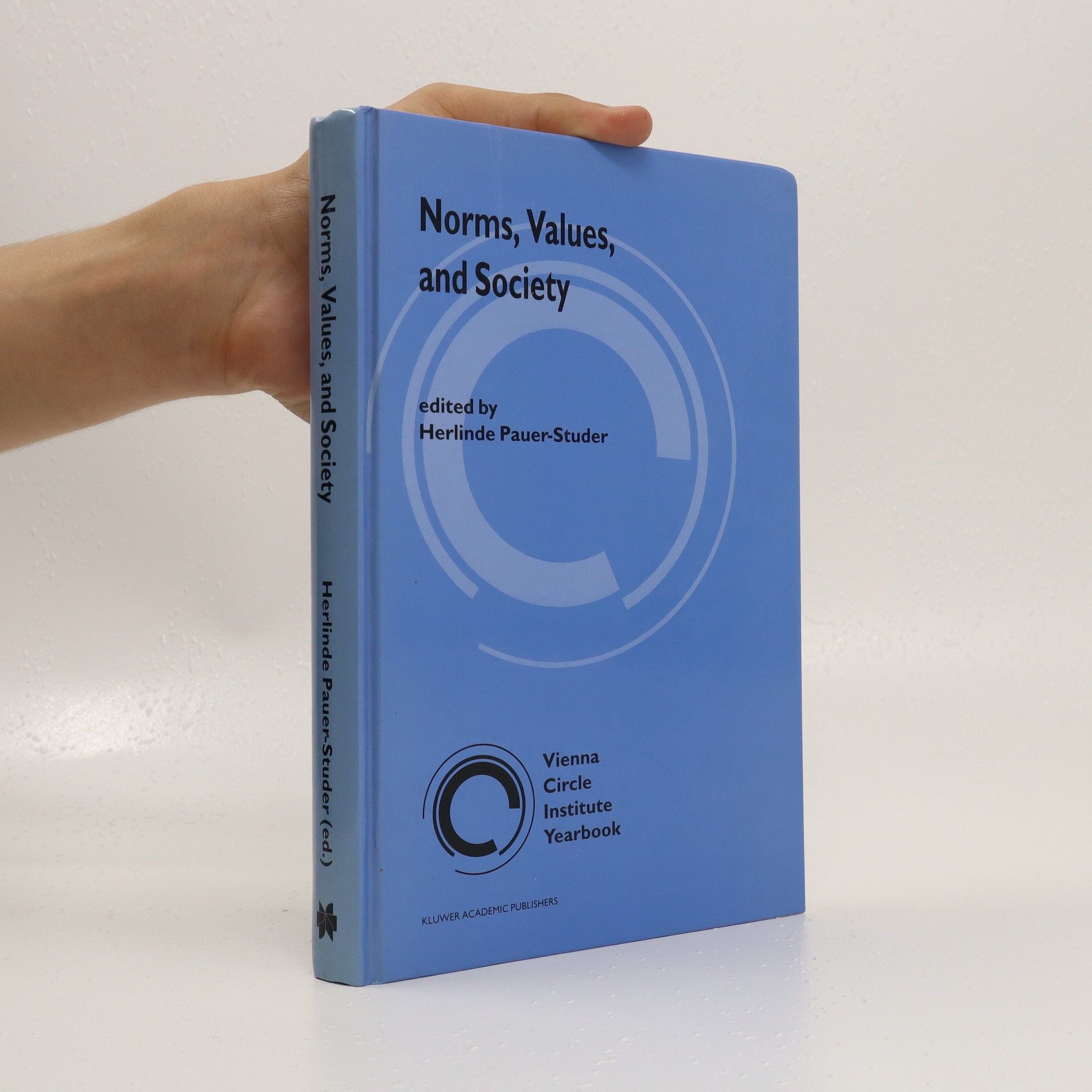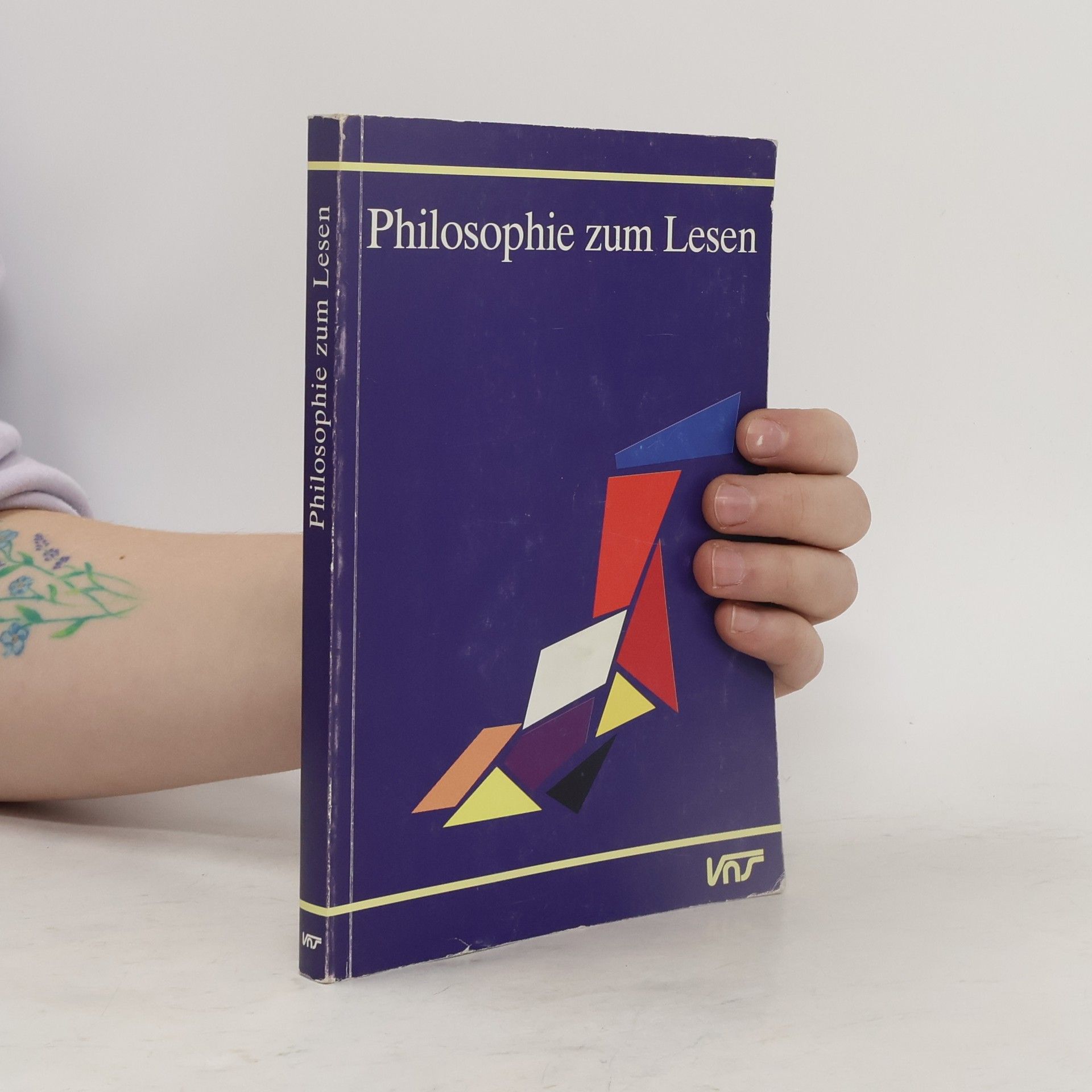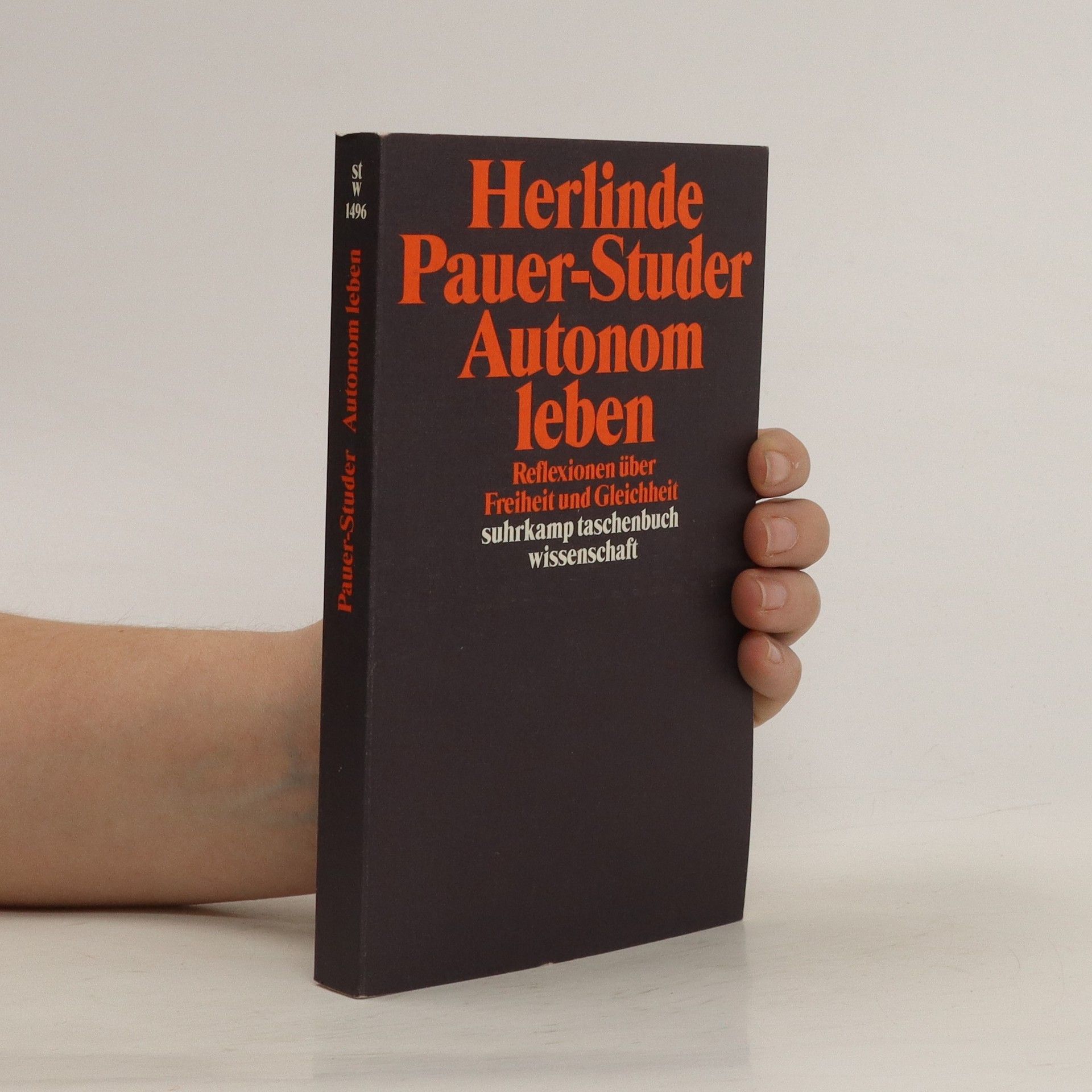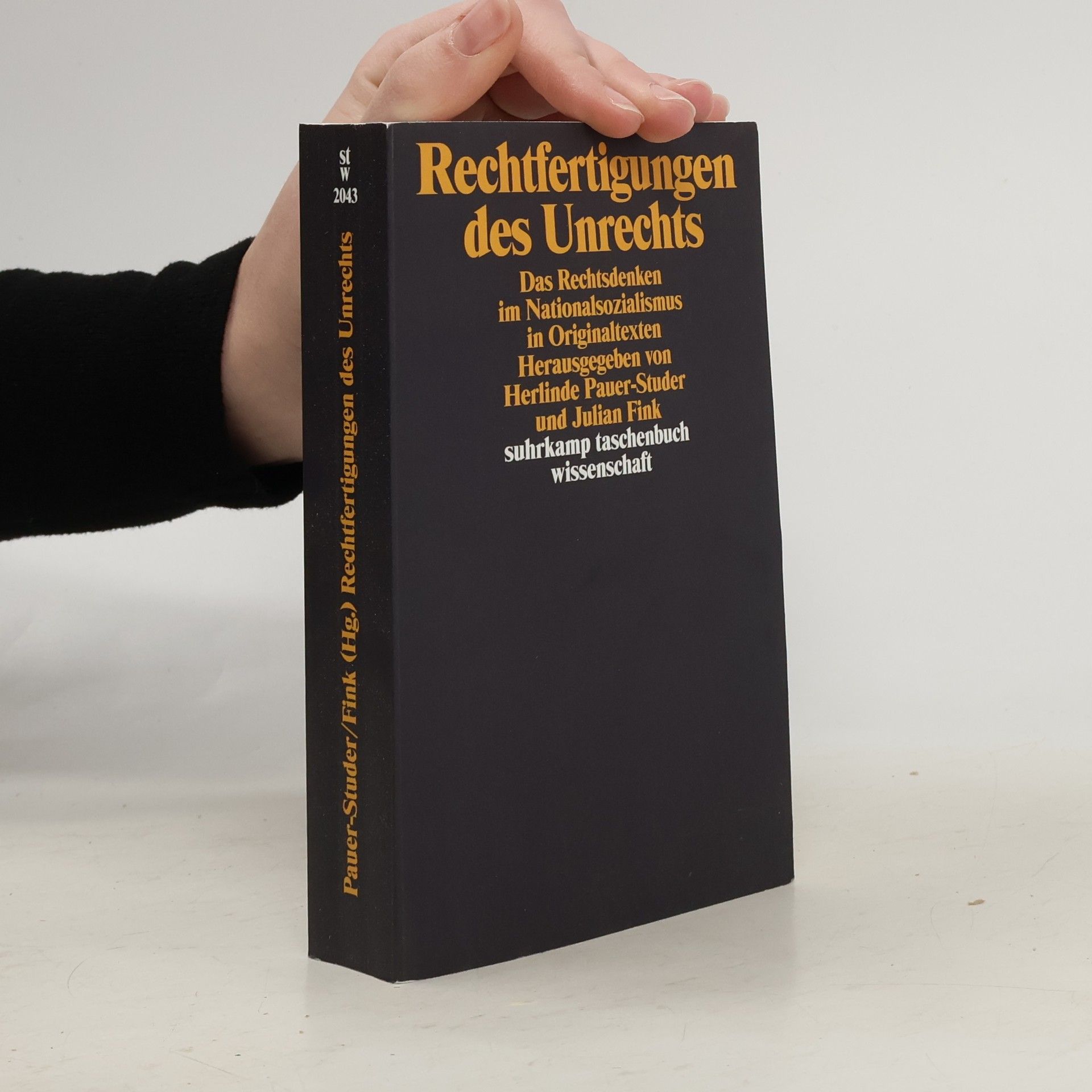Examining how crucial parts of the distorted normative order of the Third Reich evolved and were justified by regime-loyal legal theorists, this book explains how law can bend to a political ideology and fail to keep state power from transgressing elementary standards of humanity and the rule of law.
Herlinde Pauer-Studer Books






Norms, values, and society
- 360 pages
- 13 hours of reading
Norms, Values, and Society is the second Yearbook of the Vienna Circle Institute, which was founded in October 1991. The main part of the book contains original contributions to an international symposium the Institute held in October 1993 on ethics and social philosophy. The papers deal among others with questions of justice, equality, just social institutions, human rights, the connections between rationality and morality and the methodological problems of applied ethics. The Documentation section contains previously unpublished papers by Rudolf Carnap, Philipp Frank, Charles W. Morris and Edgar Zilsel, and the review section presents new publications on the Vienna Circle. The Vienna Circle Institute is devoted to the critical advancement of science and philosophy in the broad tradition of the Vienna Circle, as well as to the focusing of cross-disciplinary interest on the history and philosophy of science in a social context. The Institute's Yearbooks will, for the most part, document its activities and provide a forum for the discussion of exact philosophy, logical and empirical investigations, and analysis of language.
Der Band bietet eine Einführung in zentrale ethische Theorien wie die Kantische Ethik, Utilitarismus, Tugendethik und Kontraktualismus. Er behandelt wichtige moraltheoretische Probleme, einschließlich der Ursprünge moralischer Verpflichtungen und der Rolle moralischer Gefühle, und richtet sich an Studierende verschiedener Fachrichtungen.
Konstruktionen praktischer Vernunft
- 290 pages
- 11 hours of reading
"Weil ich nun mal ein Gerechtigkeitsfanatiker bin"
Der Fall des SS-Richters Konrad Morgen
Man habe »das moralische Recht«, dieses Volk »umzubringen«, sagte Heinrich Himmler im Oktober 1943 über den millionenfachen Mord an den Juden. »Wir haben aber nicht das Recht«, fuhr er fort, »uns auch nur mit einem Pelz, einer Uhr, mit einer Mark oder mit einer Zigarette oder sonst etwas zu bereichern.« Tatsächlich hatte Himmler 1939 eine SS-Gerichtsbarkeit geschaffen, die über die »Moral« und die Einhaltung des »Ehrenkodex« der Organisation wachen sollte. Ein solcher SS-Richter war Konrad Morgen (1909-1982). Morgen ermittelte gegen hochrangige Nationalsozialisten, u. a. gegen Karl Otto Koch, den ehemaligen Kommandanten des Lagers Buchenwald, und gegen Adolf Eichmann, dem er vorwarf, Juwelen unterschlagen zu haben. Sich selbst bezeichnete Morgen als »Gerechtigkeitsfanatiker«. Gestützt auf seine Berichte und Briefe aus der Kriegszeit sowie auf seine Aussagen in Nürnberg und beim Frankfurter Auschwitz-Prozess, zeichnen Herlinde Pauer-Studer und J. David Velleman die wichtigsten Stationen in der Karriere des SS-Richters Konrad Morgen nach. Die Biografie dieses ambivalenten Charakters ist zugleich eine Studie in moralischer Komplexität und verdeutlicht die strukturelle Pervertierung von Recht und Moral im »Dritten Reich«.
Der Band untersucht die historische Entwicklung von Staatskonzeptionen und präsentiert zentrale Strömungen der zeitgenössischen Politischen Philosophie wie Liberalismus, Neoliberalismus und Feminismus. Teil II behandelt grundlegende Fragen zu Gleichheit, Demokratie, politischer Autorität, Moral und globaler Gerechtigkeit.
In dem vorliegenden Buch wird in kritischer Abgrenzung zu den Ansätzen von John Rawls, Ronald Dworkin und Jürgen Habermas eine autonomiebezogene Konzeption des politischen Liberalismus entwickelt, welche die Herstellung sozialer Gleichheit als Mittel der Freiheitssicherung begreift. Neben einer detaillierten Analyse der Begriffe »Freiheit«, »Gleichheit« und einer Diskussion der angemessenen Parameter der Verteilungsgleichheit wird auch gezeigt, dass ein autonomiebezogener Liberalismus wichtige Impulse für eine Aufarbeitung substanzieller Fragen der feministischen politischen Philosophie ermöglicht.
Rechtfertigungen des Unrechts
Das Rechtsdenken im Nationalsozialismus in Originaltexten
- 563 pages
- 20 hours of reading
Auf welchen normativen Grundlagen beruhte das NS-System? Mit welcher Rechtfertigung konnte der Führerwille dort zu einer Quelle des Rechts werden? Wie war es gemäß der NS-Strafgesetzgebung möglich, Handlungen zu bestrafen, die gegen kein geschriebenes Gesetz verstießen? Die in diesem Band versammelten Originaltexte geben Einblick in das Denken von Rechtstheoretikern, die mit dem Nationalsozialismus sympathisierten, und belegen deren Versuch, autoritäre und dem Rechtsstaat widersprechende Rechtsprinzipien zu legitimieren. Dabei zeigt sich ein überraschender und bis jetzt von der rechts- und moralphilosophischen Forschung weitgehend unbeachteter Aspekt des NS-Unrechtssystems: der Versuch einer »Ethisierung« des Rechts und die damit verbundene Totalisierung des machtstaatlichen Einflusses.


